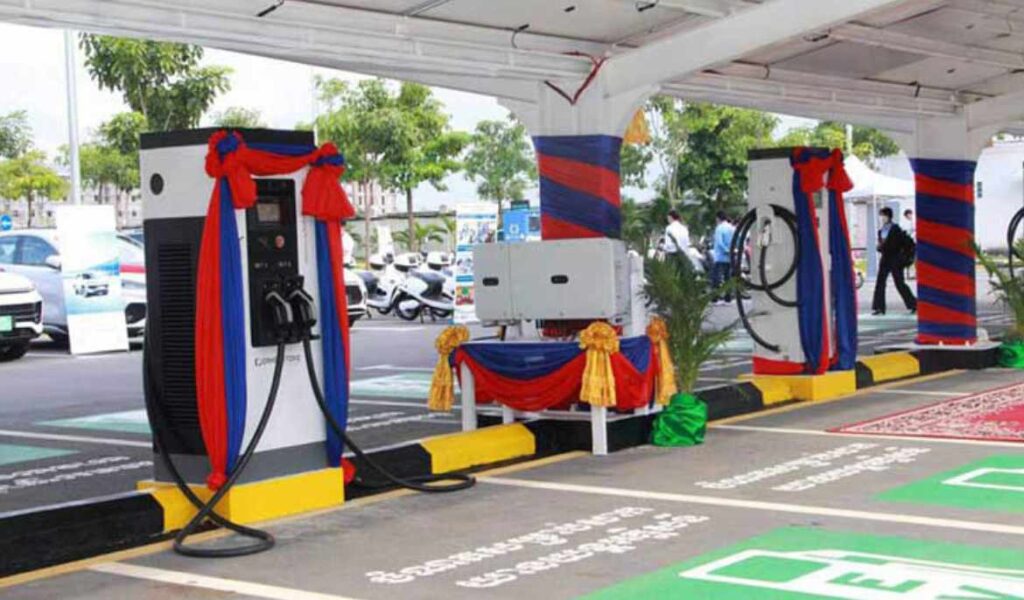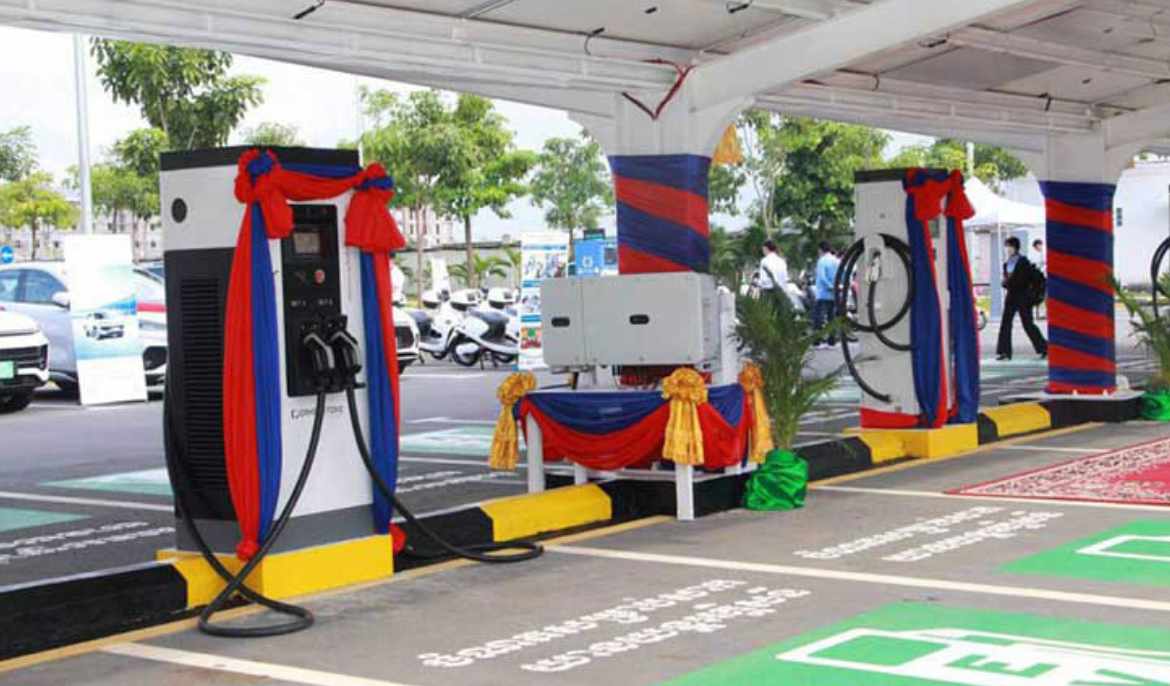The Ministry of Mines and Energy (MME) is holding consultations with the private sector to highlight the requirement for a comprehensive regulatory framework for EV charging services in the Kingdom.
This was stressed at an event organised by the MME under the theme ‘Principles and Procedures for Managing and Regulating the Development and Provision of Charging Services for Electric Vehicles’ in Phnom Penh on Wednesday. It was attended by Keo Rottanak, Minister of Mines and Energy.
As part of the development, Kith Meng, President of the Cambodia Chamber of Commerce (CCC), has been appointed as Chairman of the Coordinating Committee for the Government-Private Sector Forum (G-PSF) Mechanism. The committee also has CCC members and representatives of the private sector, developmental agencies and NGOs.
The purpose of the consultation is to devise a regulatory framework amid the number of EV vehicles increasing at an unprecedented rate in the Kingdom.
“The principles and procedures for managing and regulating electric vehicle charging services have been put into effect by the Ministry of Mines and Energy to provide choices and reduce costs for vehicle users in Cambodia as well as to contribute to reducing air pollution.”
“The procedures will combat monopolisation, and the service must ensure efficiency and safety for the public.”
In 2024, there were a total of 2,253 registered EVs, an increase of 620 percent over 2023, which had only 313 EV registrations, according to a report from the Ministry of Public Works and Transport.
China’s BYD leads the market among the EV brands in the country. According to the ministry, Cambodia has 21 EV charging stations.
In April, Prime Minister Hun Manet called on all relevant stakeholders to expand the country’s electric vehicle (EV) charging station network.
He encouraged the Ministry of Mines and Energy to explore the possibility of establishing more charging stations, as this would further promote the use of electric vehicles.
The government is committed to achieving 40 percent of electric cars and urban buses, and 70 percent of electric motorbikes by 2050 in order to reduce carbon emissions.
According to a report by market research firm GWresearch, Cambodia’s electric vehicle (EV) market is poised for significant growth, driven by government initiatives, environmental concerns, and advancements in EV technology.
“The government’s goal to increase EV registrations to 770,000 by 2030 underscores its commitment to sustainable transportation. Factors such as rising fuel prices, urban air pollution, and the need for energy security are accelerating EV adoption. However, challenges like limited charging infrastructure and high upfront costs remain.
“One significant driver is the global push towards sustainability, which has encouraged the adoption of cleaner and greener technologies. Government initiatives and incentives, such as reduced taxes on EV imports, have also played a role in promoting the EV market.
“However, the market faces notable challenges that hamper its rapid expansion. One major issue is the lack of charging infrastructure, making it difficult for widespread EV adoption. Consumers are also concerned about the affordability and availability of EV models, particularly in a market dominated by price-sensitive buyers.”
The report also said that the market is witnessing a surge in battery electric vehicle (BEV) adoption, particularly in the two-wheeler segment.
“The government’s focus on expanding charging infrastructure and offering incentives for EV purchases is encouraging consumers to transition from internal combustion engine vehicles.”



